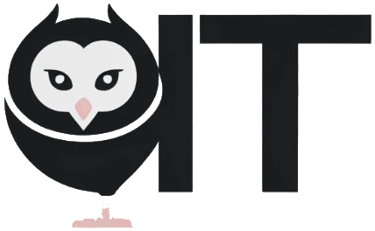Digital Transformation: Key Lessons from the Fintech Front Lines
Discover essential lessons for successful digital transformation projects in fintech. This article, informed by extensive experience with Fortune 500 clients, reveals why focusing on the human element, adopting a hybrid project approach, and prioritizing data governance are non-negotiable for achieving measurable outcomes. #DigitalTransformation #Fintech #ProjectManagement #LessonsLearned #CloudMigration #ITStrategy #OrganizationalChange #DataGovernance #OwlInsightTechnologies
9/15/20252 min read


Digital transformation is more than just a buzzword; it's a strategic imperative, particularly in the fast-paced fintech sector. Projects ranging from cloud migration and AI implementation to ERP system overhauls are complex, and their success hinges on more than just the technology itself. With a strong background in leading multimillion-dollar initiatives for Fortune 500 clients, the team at Owl Insight Technologies has identified key lessons that are crucial for any successful digital transformation project.
1. The Human Element is Non-Negotiable
Technology is only as effective as the people who use it. A common pitfall in digital transformation is focusing exclusively on the technical aspects while neglecting the human side of change. The expertise of Owl Insight Technologies in organizational change management stems from projects that achieved 100% user adoption in a migration to a new platform. This highlights that user engagement and a well-executed strategy are critical. The goal should be to empower employees, not just to install new software. By involving end-users and cross-functional teams from the beginning, companies can build a sense of ownership and ensure a smoother transition.
2. A Hybrid Approach Delivers Flexibility
While Agile methodologies are often hailed as the gold standard for innovation, a purely rigid approach doesn't always fit the reality of large-scale transformations. Complex, multi-year projects like a $20 million cloud migration require a balance. A Hybrid model, which blends the iterative, adaptable nature of Agile with the structured planning of Waterfall, often provides the necessary flexibility. This approach allows for detailed strategic planning at the program level while using Agile Scrum teams for day-to-day development and problem-solving, ensuring both long-term alignment and short-term responsiveness.
3. Data Governance is Foundational, Not an Afterthought
In fintech, data is the most valuable asset. A digital transformation that doesn't prioritize data governance is destined to fail. Lessons learned from managing projects involving Enterprise Data Warehouses and enforcing data governance practices reveal that this must be a foundational component of any strategy. This includes establishing clear standards for data quality, security, and accessibility from the project’s inception. Without a strong framework for data, new systems and platforms will only amplify existing inefficiencies and risks, especially concerning sensitive information like PII and PHI.
4. Vendor Management and Stakeholder Alignment are Critical
Digital transformations rarely happen in a vacuum. They often involve multiple vendors and a wide array of internal and external stakeholders. Experience in vendor management and building relationships with C-level executives underscores the importance of a coordinated effort. Effective communication is the key to ensuring that all parties are aligned on project goals, timelines, and outcomes. Without this alignment, delays, budget overruns, and scope creep are almost inevitable.
5. Measure Outcomes, Not Just Outputs
Finally, success should be defined by outcomes, not just outputs. It's not enough to simply complete a migration or launch a new platform. The true measure of success is the tangible business result. This could be an increase in annual revenue, a reduction in disaster recovery downtime, or enhanced user adoption. At Owl Insight Technologies, the Commitment to Results means a focus on delivering measurable outcomes and driving your success. By using data-driven insights to track progress, teams can demonstrate the true value of their efforts and ensure the project aligns with strategic business goals. This results-oriented mindset is the ultimate key to a successful digital transformation.
Consultancy
Expertise in project management and strategic consulting.
Partner with us
Insights
info@owlinsight.io
+1234567890
© 2026 Owl Insight Technologies. All rights reserved.
Perched Above the Noise, Delivering Clear IT Strategies
